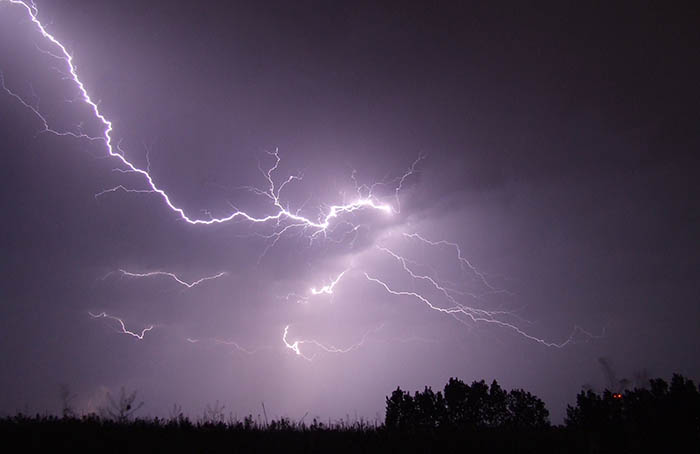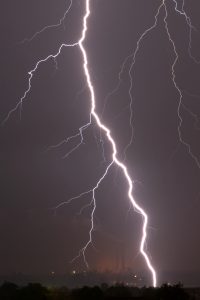
I AM Light
I find it interesting that the prescribed lectionary readings directly following Easter include many of the “I Am” statements that Jesus makes in the gospel of John (note: these “I am” statements are unusual to John, who you’ll remember is the most mystical of the gospels and the most focused on the divinity of Jesus, as well as the least historically factual).
The Five Gospels notes that “In John’s gospel Jesus frequently speaks of himself in the first person using the emphatic phrase I AM (Greek: ego eimi). This expression was widely used in the Greco-Roman world, and would have been recognized by John’s readers as an established formula in speech attributed to one of the gods.”
In addition, Matthew Fox points out, in his book The Coming of the Cosmic Christ, that the “I Am” statement is also an echo of God speaking to Moses in the burning bush story. In this story God is sending Moses to free the Israelites from slavery in Egypt and Moses asks, “what if they want to know who sent me?” And God replies, “tell them ‘I AM has sent me to you.’”(Exodus 3:14)
The implication, of course, is that Jesus speaks like a God, and refers to himself as God, which is completely unlike anything he says in the other three gospels. Most scholars agree that Jesus did not actually say these things.
If that is the case, why are they in scripture and what do we do with them? Well, we’re going to look at them from the perspectives of the pre- and post-Easter Jesus and the Cosmic Christ.
(For the full video version, click here.)
For the pre- and post-Easter Jesus the “I am” statements express how the early community experienced the post-Easter Jesus. Marcus Borg, in Meeting Jesus Again for the First Time, suggests we might understand them best not as first-person statements made by Jesus, but as third-person statements made by the community. The “I am” statements are “a powerful testimony to the reality and significance of the post-Easter Jesus, the living Christ of Christian experience.” In this sense, each of these statements is “true” even if it isn’t historically factual.
So, imagine for a moment that you are part of the early Christian church. What does it mean to affirm that Jesus was the light of the world? What characteristics did he have? What darkness did he break through?
Personally, I think he offered hope to a people who were struggling with oppression. He offered open arms of healing and compassion for those who were ostracized, poor or infirm. And he preached with fresh insights about a God of wisdom, justice, and love.
Throughout the ages people have continued to experience Jesus as a light in their lives or as the light of the world.
Now, let’s take this one step further to the Cosmic Christ. First, we recall that the Cosmic Christ is born out of the energetic and physical connection of all things in the universe and is the archetype of the divine-human (body-spirit) connection. “Christ” was not simply a “name” or title for Jesus, but a state of consciousness that we can all achieve when we reach (even momentarily) a state of wholeness or connectedness with all things: a God-us-creation connection. In this understanding, Jesus wasn’t to be the one unique Christ, but a model or blueprint to show us all how to BE Christ.
This means that if Jesus was experienced as being the light of the world, we can all be experienced as being the light of the world. And, in fact, that might perhaps be one of our spiritual goals.
As Matthew Fox says, “These revelations of “I-am-ness” challenge us to name (or claim) our lives and beings in a similar fashion… How, in other words, are we also expressions of the Cosmic Christ as Jesus was so fully?”
Specifically, for today… how are we the light of the world?
Here’s an odd little thing that happened this week. I was making an appointment to get a tetanus shot for our upcoming mission trip and had to go through verifying information. Well, the person asked me if I’d like to list a religion. Without hesitation I said “no.” And her very next question was, “Do you have an employer?” Caught.
Of course I was writing my sermon on the same day which forced me to question myself: is this behavior not being light, not letting my light shine, not being Christ? I imagine there are some folks who would say I absolutely fell short. And that we should be declaring our Christian faith from the rooftops, if not the front doors of people’s homes.
I think for me, light has little to do with religion. Religion has too often been used to separate and exclude, to draw lines of right and wrong instead of drawing circles of compassion. I don’t particularly appreciate what people today perceive as Christian, so I don’t broadcast my connection with Christianity. That is not my light. I prefer to think of my light as an outward expressions of an inward disposition/state of being.
In Ancient Greek, “I am” or “I exist”(ego eimi) is the first person singular present tense of the verb “to be.” So, “I am” statements are statements of being, not really doing or having. Meister Eckhart said, “people ought to think less about what they should do and more about what they are.”
A woman I know was recently talking about the days when she used to go in to work and walk down the hallway of offices every morning saying “hello” to each employee and greeting them personally. No one else did that and they probably thought she was a little odd, but it was a very simple way to be light: friendliness, inclusivity, joy.
It isn’t always easy to be light like Jesus was. And, frankly, it is easier to shine for some and not others. Sometimes we don’t feel worthy, or we fear rejection. Sometimes we’re afraid of being vulnerable or feeling too exposed to criticism. Sometimes it is just too hard given what we may be going through. And society reinforces separation, with admonitions like: don’t talk to strangers, mind your own business, live and let live.
 So, here’s a thought... have you ever turned out the lights and [Lightning_in_Zdolbuniv] sat in the darkness to watch a thunderstorm? When you do that, if you have to get up to get something you wait until the lightning flashes, look for where things are and then you are able to move a little ways by memory before perhaps waiting for lightning to flash again. Maimonides said,“We are like someone in a very dark night over whom lightning flashes again and again.”
So, here’s a thought... have you ever turned out the lights and [Lightning_in_Zdolbuniv] sat in the darkness to watch a thunderstorm? When you do that, if you have to get up to get something you wait until the lightning flashes, look for where things are and then you are able to move a little ways by memory before perhaps waiting for lightning to flash again. Maimonides said,“We are like someone in a very dark night over whom lightning flashes again and again.”
Jesus gave us the example of what a life full of God is like, what a life consistently shining light looks like, and I think it is something to work toward in our spiritual lives. But, we’re all probably a bit more like lightning than the sun. We have flashes of wholeness, wisdom, compassion, forgiveness, generosity, insight, love.
In those moments of wholeness, of Christ-ness, we not only offer light to others, but what we see in that moment stays with us when darkness descends again. Hopefully over time we can bring more and more of what we see in the times of light back with us to inform our journey through the dark until we experience another moment of wholeness. And perhaps over time our flashes of light become more frequent and last longer, shining more light into the world.
Love & Light!
Kaye



